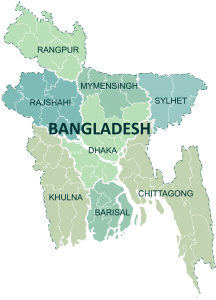The Bangladesh Factory Collapse
The Bangladeshi government has been under a tremendous amount of pressure to make serious changes after the April, 24 factory collapse at Rana Plaza which killed over 1,100 people. Working conditions and wages were the top priorities for the garment factories to address, and the government along with several of the world’s largest apparel companies have finally stepped in to begin the implementation of a standard life safety plan. Agreements were made on Monday to raise wages for garment workers and change labor laws to make it easier to form trade unions.
Implementing a Life Safety Plan
The shift in practice is long overdue. For years, Bangladesh has been home to some of the worst practices in the global garment industry including unsafe factory conditions and the lowest wages in the world, starting around $37 a month. Both the government and global brands have avoided jumping in to help workers and improve conditions, but the Rana Plaza disaster, the deadliest in the history of the garment industry, has initiated this much needed change.
Endorsements of the new Life Safety Plan
Swedish retail giant H&M, Inditex, C&A, Primark, and Tesco endorsed the life safety plan put in place on Monday. As the largest purchaser of garments from Bangladesh, H&M is playing a vital role in the overhaul of working conditions. This overhaul will give public accountability to fire and building safety and will mandate repairs and renovations. The plan will also enhance roles played by workers and unions to ensure ongoing factory safety.
Worker safety and welfare have finally been brought to the forefront of operations at the 5,000 garment factories in Bangladesh, which employ over 4.5 million people. To read the full article from which this post was adapted visit The NY Times website here.
Google


Bangladesh’s government has in recent years cracked down on unions attempting to organise garment workers. In 2010, the government launched an industrial police force to crush street protests by thousands of workers demanding better pay and working conditions.
Violence has erupted in Bangladesh, following the world’s worst garment industry disaster last month, as thousands of workers gathered in the country’s capital on Monday demanding better pay conditions. Police charged batons and fired rubber bullets and tear gas as angry protesters demonstrated outside the capital’s main factory district, blocking the main highway in the Ashulia industrial area, home to the world’s largest manufacturing factories such as Walmart.